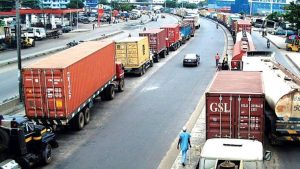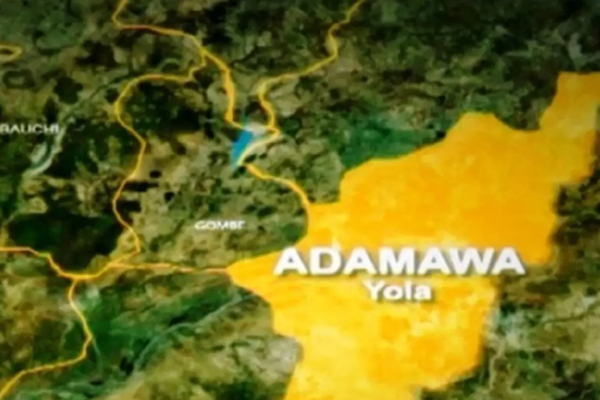A major protest erupted across Lagos ports on Wednesday as maritime truckers and fleet owners marched from the Lilypond Truck Park in Ijora to the Apapa and Tin Can Island ports, denouncing rampant extortion and mismanagement threatening port operations.
Chanting slogans and brandishing placards, the truckers called on authorities to preserve and improve the electronic call-up system (ETO) introduced by the Nigerian Ports Authority (NPA)—warning that scrapping the digital access system would plunge the ports back into chaos.
Protesters accused corrupt elements of hijacking the system and running extortion rackets along port access roads, where truck drivers allegedly pay between ₦5,000 and ₦20,000 at numerous illegal checkpoints. Digital call-up slots, meant to be issued at ₦10,250, are now being resold on the black market for as high as ₦400,000, according to findings by The Nation.
“The extortion and racketeering have become unbearable,” said Mohamed Sani Bala, Secretary General of the Association of Maritime Truck Owners (AMATO).
“Truckers are losing most of their revenue to extortion checkpoints. We’re appealing to the NPA to reduce these checkpoints immediately.”
Protesters carried placards reading: “ETO call-up is working,” “No to policy summersault—Let ETO be,” and “MTDA supports ETO call-up against going back to Egypt,” referencing a biblical rejection of the disorderly manual system that once paralyzed Lagos ports with gridlock.
Lukman Shittu, Chairman of the Lagos State Trucks and Cargo Operators Committee (LASTCOC), alleged that calls to dismantle the ETO system are driven by those who benefitted from the corrupt, chaotic practices of the past.
“These are not real stakeholders. They want a return to the days of backdoor dealings and traffic mayhem,” Shittu said.
Zangalo, a respected member of the trucking community with over two decades of experience, warned that inefficiencies at port terminals like APMT and ENL often delay truck movements and create artificial backlogs.
Afeez Alabi, PRO of the Maritime Truck Drivers Association (MTDA), highlighted the importance of retaining the digital system, which he said has improved transparency, reduced congestion, and curtailed irregularities.
“Reversing back to manual systems will collapse operations entirely,” Alabi warned. “But even within ETO, corruption has crept in. We now see call-up slots sold for over ₦120,000. That must stop.”
The truckers urged the NPA to reinforce the digital framework by introducing Electronic Tags (ETAGs) and a robust truck scheduling system to block manipulations and ensure only authorized trucks access the ports.
Their message was clear: maintain and fix the ETO system, not dismantle it—or risk undoing years of progress in decongesting the nation's key economic gateways.




